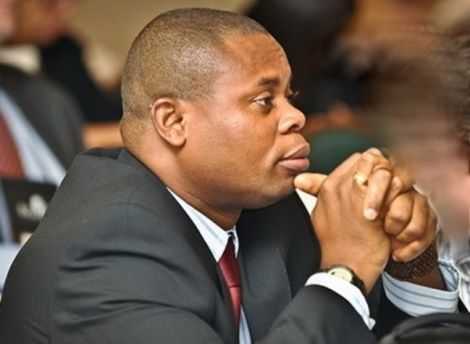Policy think tank IMANI Africa says government can assert its anti-corruption credentials by beginning the fight against corruption at the Presidency.
This according to the Founding President of IMANI, Franklin Cudjoe is because the seat of government is where the President has near-absolute control over outcomes and consequences when it comes to corruption.
In a post to congratulate the newly nominated Special Prosecutor, Lawyer Kissi Agyebeng, Mr. Cudjoe added that he is optimistic when approved Mr. Agyebeng will depart from the "modus operandi of the previous occupant of the position."
According to him, whilst criminal prosecutions are a great deterrence, "the political costs of a failed prosecution can have a chilling effect on other prosecutions, especially in our situation where investigations are rarely thorough because of institutional defects."
"At any rate, the Executive, or to be blunt, the President, does not control the Courts. In fact, we are now even appearing to ask that he distances himself from the investigation and prosecution of corruption in this country. With greater independence of the process comes a lowering not just of control but also accountability," the statement added.
Find the full text by Franklin Cudjoe below:
We welcome Mr. Kissi Agyebeng as the next Special Prosecutor. We know he will depart significantly from the modus operandi of the previous occupant of the position and we wish him well.
I thought I should share a tiny but crucial bit of what my colleagues and I felt about the creation of the SP office again and hope that it resonates with our collective efforts to deal with high level corruption.
We contend that even if Amidu had started any high level criminal prosecutions, we would have had to contend with the limitations of criminal prosecutions as a tool in fighting corruption. Whilst, criminal prosecutions are a great deterrence, they can only happen after the fact, and often the lost money is never recouped. The political costs of a failed prosecution can have a chilling effect on other prosecutions, especially in our situation where investigations are rarely thorough because of institutional defects.
At any rate, the Executive, or to be blunt, the President, does not control the Courts. In fact, we are now even appearing to ask that he distances himself from the investigation and prosecution of corruption in this country. With greater independence of the process comes a lowering not just of control but also accountability.
To a limited extent, this paradox is also evident in that other major plank of anti-corruption work: procurement reform.
An independent procurement system is one in which the government’s ability to change things can be slowed by the demands of due process and the sheer technical burden of implementing new processes and technologies to enhance quality and accountability even as the public procurement authority is granted greater independence from the Executive.
It is in consideration of all these facts that has led IMANI to the belief that the quickest and most effective way for the government to stamp its feet and assert its anti-corruption credentials is to start the process at the Presidency, the heart of the government, where the President has near-absolute control over outcomes and consequences.
Latest Stories
-
Stampede in southwestern Nigerian city causes multiple deaths
1 minute -
Tens of thousands without water in Mayotte as curfew brought in
15 minutes -
ORAL: We won’t witch-hunt, we’ll focus on transparency, not revenge – Ablakwa
38 minutes -
Attempted robbery: Accused claims he carried cutlass for protection
55 minutes -
Excavator operator jailed for stealing
1 hour -
Embattled Liberian speaker questioned by police over parliament fire
3 hours -
‘I won’t be a judge in my own court; ORAL is about protecting public purse’ – Ablakwa
3 hours -
Bawumia joins thousands in Kumasi for burial prayers for Ashanti Regional Imam
3 hours -
Blue Gold Bogoso Prestea Limited challenges government actions in court
4 hours -
Verdicts due for 51 men in Pelicot mass rape trial that shook France
4 hours -
Syria not a threat to world, rebel leader Ahmed al-Sharaa tells BBC
4 hours -
Patrick Atangana Fouda: ‘A hero of the fight against HIV leaves us’
5 hours -
Trinity Oil MD Gabriel Kumi elected Board Chairman of Chamber of Oil Marketing Companies
5 hours -
ORAL campaign key to NDC’s election victory – North America Dema Naa
5 hours -
US Supreme Court to hear TikTok challenge to potential ban
6 hours

